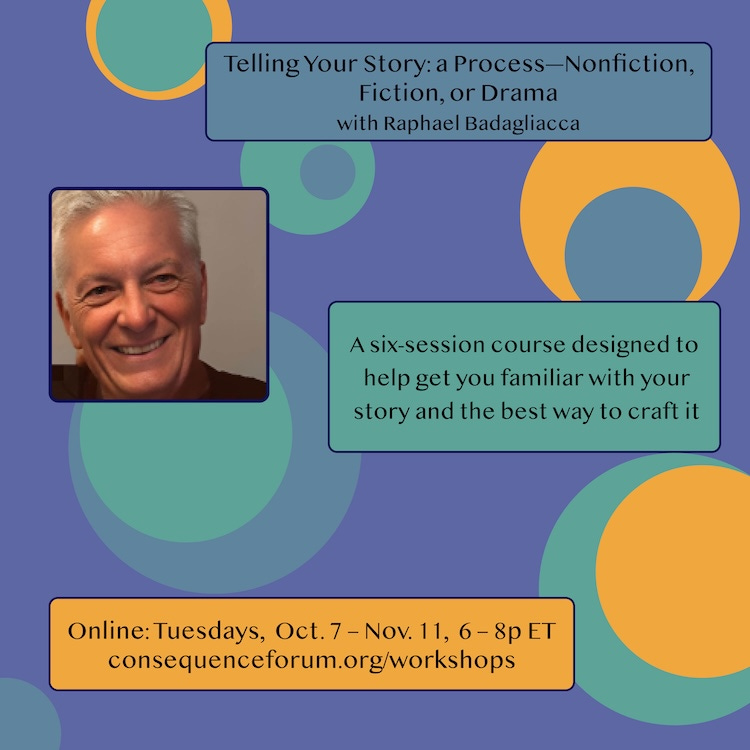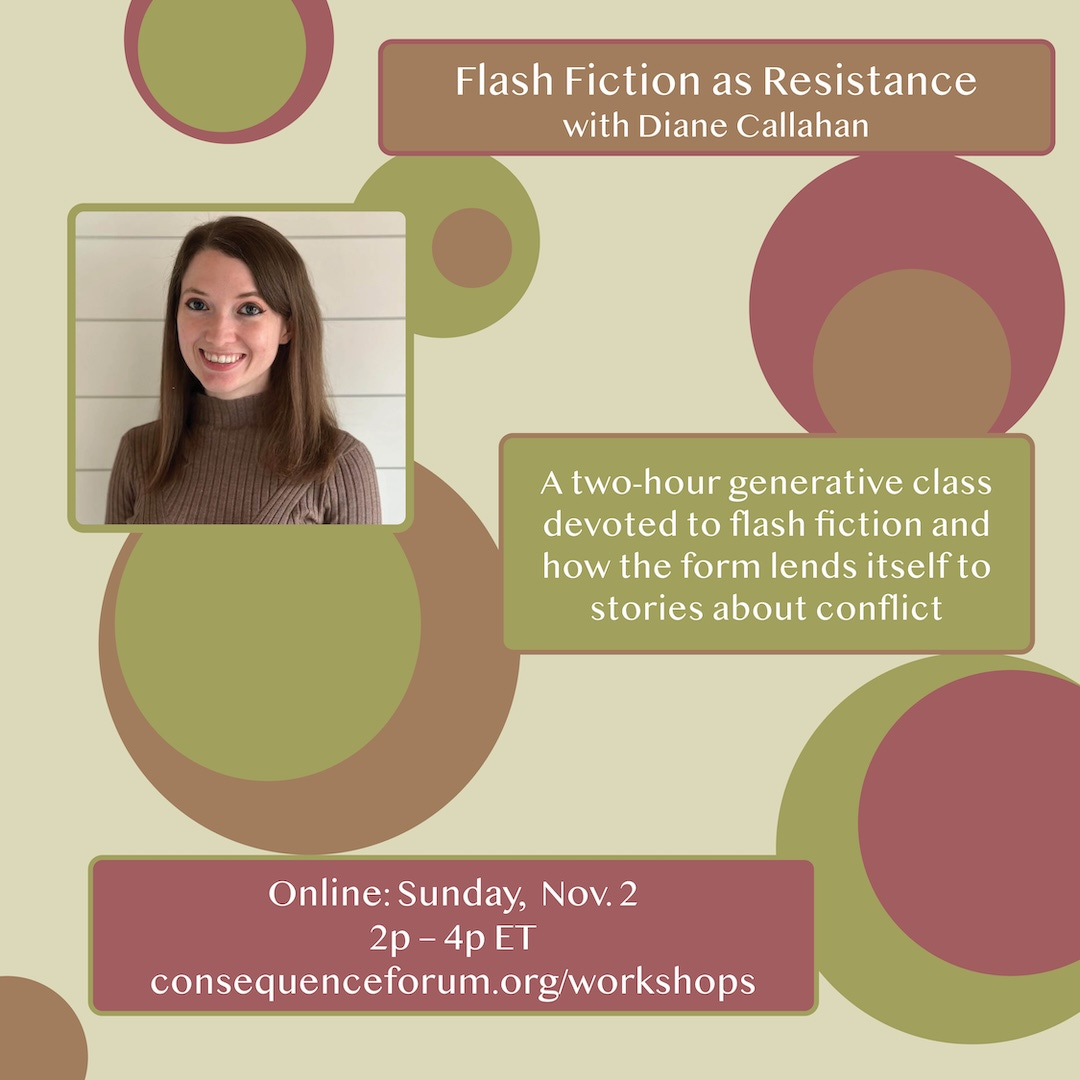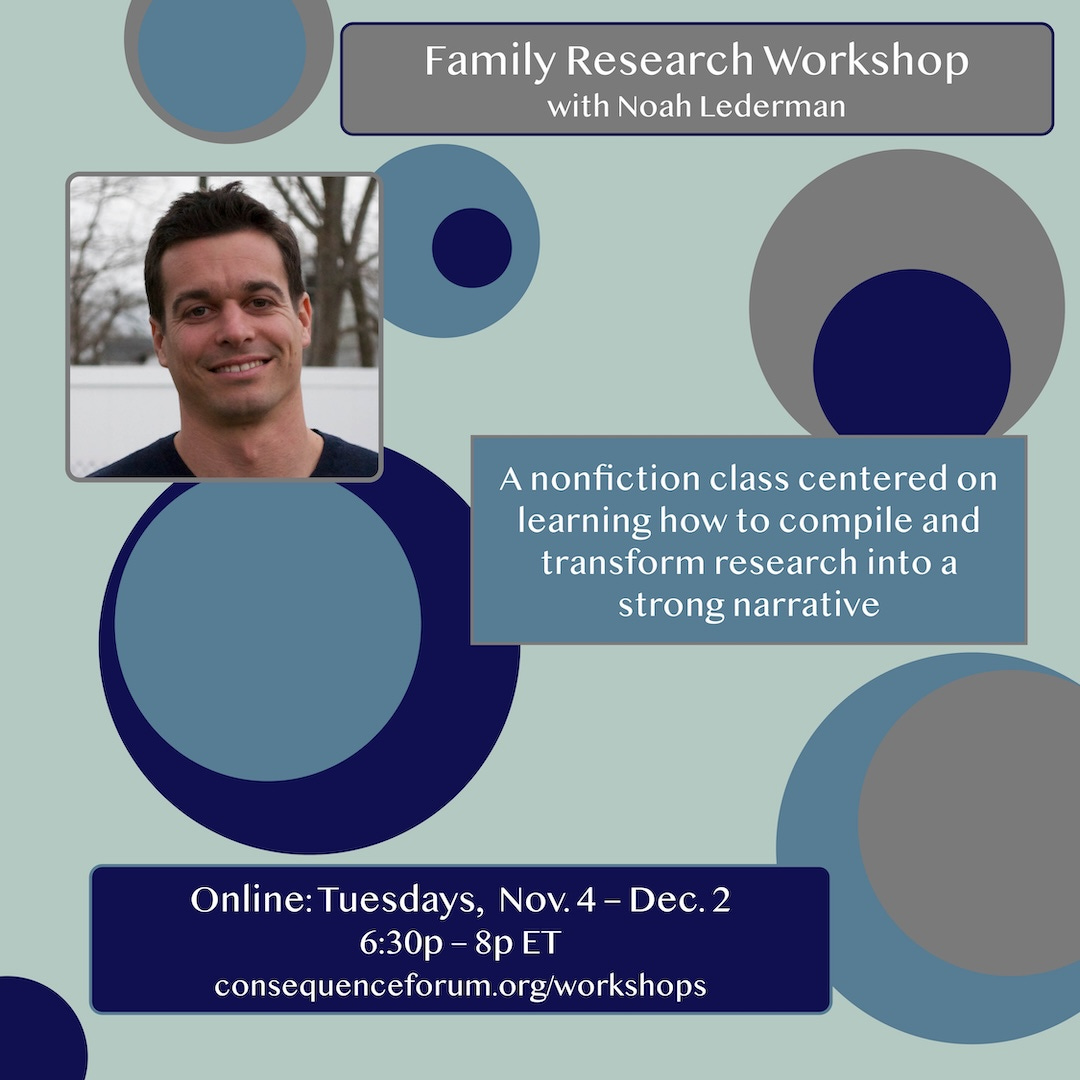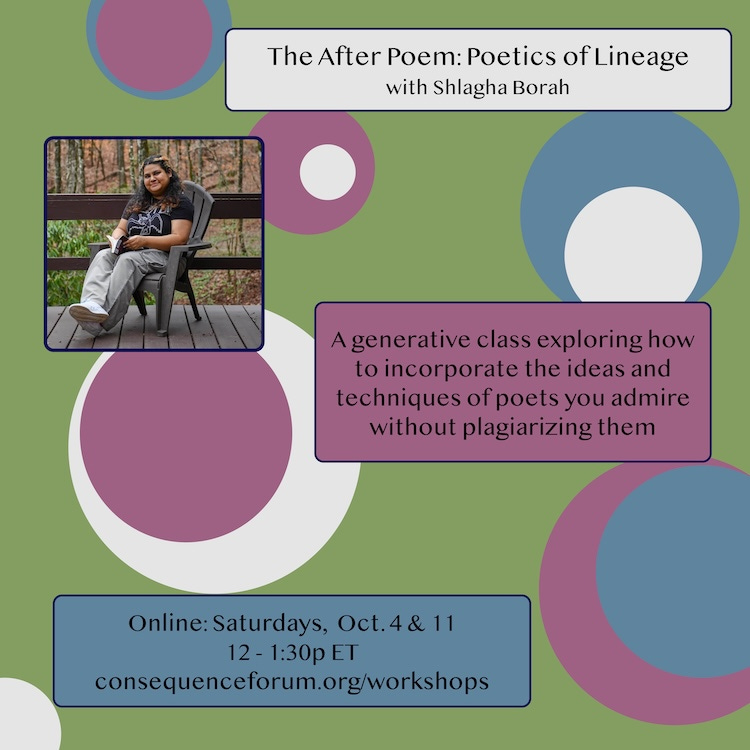Friends,
We have four new workshops coming up. Each is designed to help those who want to sharpen their writing skills, discuss craft and project ideas, and find potential new writing groups.
Also, please note that we offer both a sliding scale and a reduced rate for those who can’t make a class but would like to have access to the video recordings.
For more info on these discounts or if you have any questions about the classes, please email me at info@consequenceforum.org.
Thanks, and I hope you are all well.
Matthew Krajniak
Executive Editor
War has been a feature of human experience since individuals collected into groups. If there is anything older than war, it’s storytelling. We are a narrative species. It’s not surprising that war is the subject of some of the oldest surviving stories—celebration of heroes and victories. But we know there is also an underside to glory. And we know that trauma is intergenerational.
In this six-session course, we’ll engage in discussions, read excerpts, and explore ideas through writing exercises to help get you familiar with the story you want to write about and the best way to do that. The story may have you at the center or someone else. It can be a personal narrative, a short story, or scenes in a play. The overall idea is to allow ourselves to explore the story and then refine what we find. The workshop component of the class will be fluid—you can share work with others or with the instructor alone.
The goal by the end of the course is to have a piece with clear ideas and direction, to move toward submission to publishers or theatres, or just to share with others.
Click to learn more or to register:
Flash fiction can feel intimidating as a form. How can a writer convey a full story or emotion in under a thousand words? And how can we do justice to war and geopolitical violence in such a short space? As flash fiction aficionado Kathy Fish observes, “Flash fiction, I believe, is its own unique literary form, not merely a short story in miniature. Given its limited word count, flash lends itself well to innovation and experimentation.”
In this two-hour intensive, we’ll explore the power of flash through examples of published work from Consequence and writing prompts tailored to help you create a new piece around themes of conflict. We’ll discuss how flash can be a tool for resistance through hyperfocus on a particular image or the use of inventive structures. Through the compression of language, writers can communicate nuanced ideas and experiences that lend themselves to rereading.
By the end of this intensive, students will have
1. A draft or outline of a new flash fiction piece themed around the human consequences of war or geopolitical violence
2. Developed an understanding of at least three tools for approaching flash fiction as a genre
3. A deeper understanding of the purpose and possibilities of flash
All levels of writers are welcome.
Click to learn more or to register:
Quite often, we look back on the conversations that we never had with people in our lives who have now passed on, or we put off interviews with living relatives or acquaintances because the topics feel too sensitive or we are not certain where to begin (for example, if they have experiences with loss related to conflict). This course will explore how to access the stories of friends, family, or strangers who may not have left recorded testimony in their lifetime, or it will help writers discover entry points into another person’s history.
We’ll create this narrative through discussing and developing skills related to a variety of research strategies including
~Conducting interviews (especially when discussing sensitive topics)
~Digging through archival materials efficiently
~Researching contemporaneous news articles
~Locating people and groups online
~Creating a system to file and record research
We’ll also discuss and develop skills related to the craft of writing these narratives through
~Analyzing how other authors have told family narratives
~Analyzing choices required when crafting such pieces especially as they relate to fiction vs. nonfiction, researcher as a character, handling point of view of real characters, and managing conflicting accounts.
~Using a newspaper article or interview to show how to create a narrative from primary source documents.
~Doing writing exercises to develop early ideas and hone your story.
~Workshopping stories students bring to class
By the end of this class, registrants will have a strong sense of how to research and tell the story of a person of interest.
Writers of all levels are welcome.
Click to learn more or to register:
Imitation is said to be the greatest form of flattery. However, imitation without some form of acknowledgment to the original work can be seen as lazy, disingenuous, or plagiaristic. We all have writers and artists we love, so if we want to pay tribute to them in our own writings, how might we do that?
These two sessions are designed to address that challenge and provide writers with ideas and strategies on how to pay homage to their favorite poets without crossing the line. Participants will learn how to take inspiration from poetic forms and content, and ingrain it into our own work.
We’ll do this by reading the original poems (from writers such as Vievee Francis, Sam Herschel Wein, and Tarfia Faizullah) and then read poems inspired by/dedicated to them—the after poems.
We’ll ask questions like: How does one maintain the thread/form/theme/content of the original work without plagiarising it? What is imitation versus inspiration? What is the purpose of after poems—are they simply a way of building on someone else’s ideas? Are after poets a form of docu-poetics/preservation? How does the after poem serve as a means of outreach and community building, especially when done by writers from minority groups (including those who are part of a diaspora)?
We’ll then use these discussions to help generate or revise our own work that might be considered an after poem.
All levels of writers are welcome.
Click to learn more or to register:







Workshops sound wonderful. My plate is full right now but as a lifelong writer I know there's always room for improvement, always more to learn and no writing is ever finished, only abandoned, as the famous saying goes. I'll watch out for one of yours I can schedule.